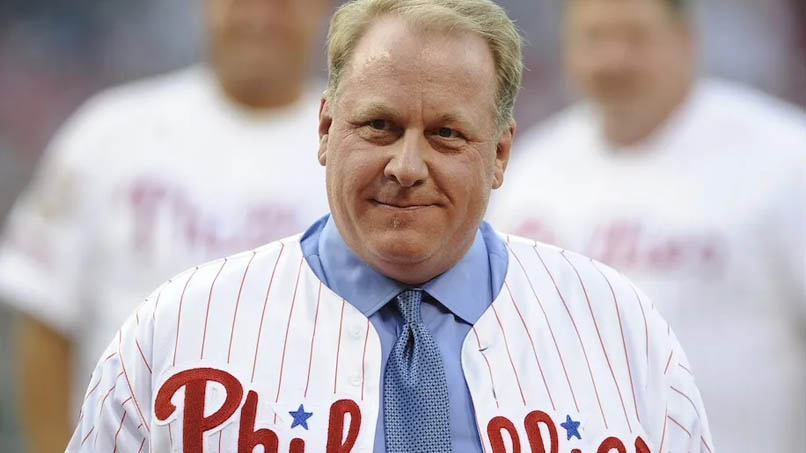 |
| Curt Schilling posted a career 2.23 ERA in the postseason. | Photo: Getty Images |
It's not a popular opinion, but Curt Schilling belongs in baseball's Hall of Fame. Unfortunately, it's doubtful he'll have his name called on Tuesday as a member of the Class of 2022.
Schilling was 16 votes short last year of hitting the 75 percent mark needed for enshrinement. It appears, through public ballots, that he's lost momentum and may not even reach 65 percent this year, his last on the ballot. In fact, according to research from Ryan Thibodaux and his Hall of Fame ballot tracker, more than two dozen voters that placed a checkmark next to Schilling's name in a previous election have left him off their ballot this year.
I cannot justify Schilling's inflammatory rhetoric and societal commentaries. I find so much of what he says despicable and off-putting. I also, however, can separate the ball player from the individual.
It's difficult to tell the story of baseball in the 1990s and 2000s without Schilling.
No hurler has thrown more innings in the modern era, and Schilling's 2.23 ERA in 133 1/3 postseason innings is deserving of recognition. He also was a six-time All-Star, a World Series MVP, and won three titles. His 79.5 career WAR is significantly higher than the 73 career WAR average of the 66 other pitchers already in Cooperstown.
Schilling was one of the best hurlers of his generation and is arguably the best big-game pitcher in baseball history, but much of the BBWAA electorate finds him in breach of the 'character clause' as defined by the Hall of Fame.
“Voting shall be based upon the player’s record, playing ability, integrity, sportsmanship, character, and contributions to the team(s) on which the player played.”
The purity of the "character clause" can be debated, but we know multiple players already enshrined in Cooperstown fall short of being stellar human beings. The Hall of Fame is an imperfect way to celebrate the best-of-the-best in an imperfect world.
Why the microscope on Schilling?
Why can't we agree that he's not a role model and he's a polarizing figure, but he had an outstanding career on the baseball diamond? Why can't two things be true at once?
Why can't we say Schilling is a loon but was also a helluva ballplayer?
Barry Bonds and Roger Clemens were tied to performance-enhancing drugs and cheated the sport, yet their chances for enshrinement by the electorate appear to be increasing. Schilling, meanwhile, is judged on the same moral code as being unworthy by the BBWAA?
Let me be the one to stroll the Hall of Fame with my son and educate him as to why Schilling was an ass. I don't need the BBWAA to shield me from simultaneously balancing two truths.


